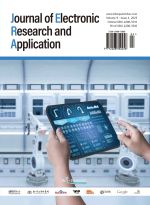Abstract
With the continuous advancement of the tiered diagnosis and treatment system, the medical consortium model has gained increasing attention as an important approach to promoting the vertical integration of healthcare resources. Within this context, laboratory data, as a key component of healthcare information systems, urgently requires efficient sharing and intelligent analysis. This paper designs and constructs an intelligent early warning system for laboratory data based on a cloud platform tailored to the medical consortium model. Through standardized data formats and unified access interfaces, the system enables the integration and cleaning of laboratory data across multiple healthcare institutions. By combining medical rule sets with machine learning models, the system achieves graded alerts and rapid responses to abnormal key indicators and potential outbreaks of infectious diseases. Practical deployment results demonstrate that the system significantly improves the utilization efficiency of laboratory data, strengthens public health event monitoring, and optimizes inter-institutional collaboration. The paper also discusses challenges encountered during system implementation, such as inconsistent data standards, security and compliance concerns, and model interpretability, and proposes corresponding optimization strategies. These findings provide a reference for the broader application of intelligent medical early warning systems.
References
Simeone A, et al., 2021, Cloud-Based Platform for Intelligent Healthcare Monitoring and Risk Prevention in Hazardous Manufacturing Contexts. Procedia CIRP, 99: 50–56.
Bashir A, et al., 2020, Medcloud: Cloud-Based Disease Surveillance and Information Management System. IEEE Access, 8: 81271–81282.
Salama AS, Eassa AM, 2022, IOT and Cloud-Based Blockchain Model for COVID-19 Infection Spread Control. J Theor Appl Inf Technol, 100(1): 113–126.
Waljee AK, et al., 2022, Artificial Intelligence and Machine Learning for Early Detection and Diagnosis of Colorectal Cancer in Sub-Saharan Africa. Gut, 71(7): 1259–1265.
Young MR, et al., 2020, Prediagnostic Image Data, Artificial Intelligence, and Pancreatic Cancer: A Tell-Tale Sign to Early Detection. Pancreas, 49(7): 882–886.
Riaz K, McAfee M, Gharbia SS, 2023, Management of Climate Resilience: Exploring the Potential of Digital Twin Technology, 3D City Modelling, and Early Warning Systems. Sensors, 23(5): 2659.
Shah A, et al., 2021, Smart Cardiac Framework for an Early Detection of Cardiac Arrest Condition and Risk. Frontiers in Public Health, 9: 762303.
Sarkar D, Patel H, Dave B, 2022, Development of Integrated Cloud-Based Internet of Things (IoT) Platform for Asset Management of Elevated Metro Rail Projects. International Journal of Construction Management, 22(10): 1993–2002.
Sivan R, Ahmad Zukarnain Z, 2021, Security and Privacy in Cloud-Based E-Health System. Symmetry, 13(5): 742.
Karargyris A, et al., 2023, Federated Benchmarking of Medical Artificial Intelligence with MedPerf. Nature Machine Intelligence, 5(7): 799–810.
